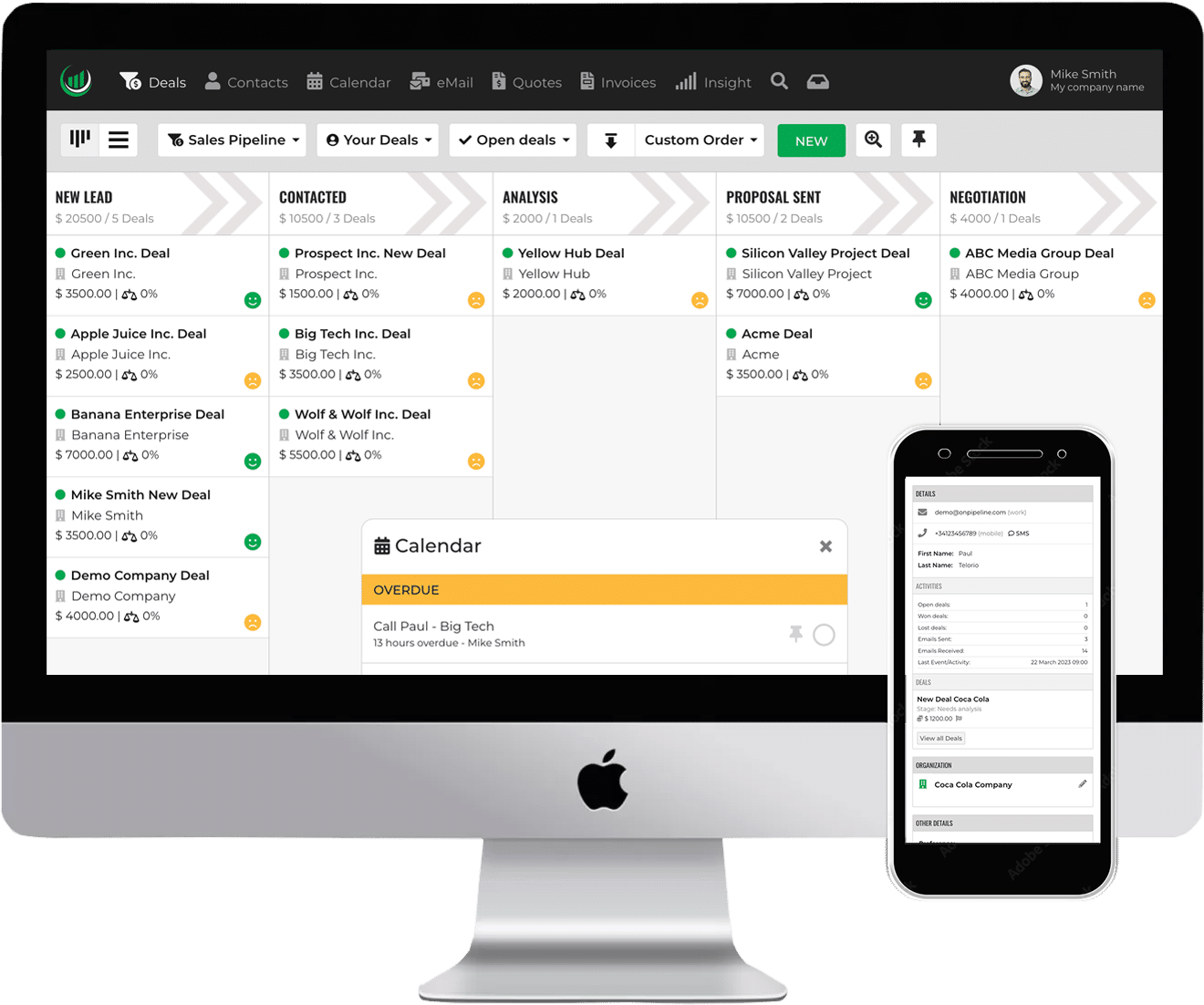Telemedicine visits surged more than 38x from pre-pandemic levels, according to McKinsey, and healthcare startups are processing terabytes of protected health information (PHI) every day.
That acceleration brought opportunity and risk.
The Big Five Providers
HIPAA-compliant hosting is no longer a niche service.
If your priority is launching a CRM without running servers, consider a healthcare platform that already meets HIPAA safeguards. Onpipeline offers a HIPAA-compliant CRM and provides a Business Associate Agreement for healthcare customers.
Not all hosting providers are created equal:
Atlantic.Net
Atlantic.Net is healthcare native rather than a generalist cloud that happens to serve clinics and healthcare service providers. Its public materials highlight SOC 2 and SOC 3 certifications and regular HIPAA and HITECH audits, which matter when auditors ask for third party verification rather than marketing claims. They are audited and certified every year by a third-party independent CPA firm, hence Atlantic.Net is a HIPAA compliant hosting provider.
The company puts core security controls up front. Business Associate Agreements are standard, and customers can layer intrusion prevention, managed firewalls, vulnerability scanning, file integrity monitoring, and anti malware protections.
That combination speaks to a provider that is used to working with compliance officers, not only with developers. For teams that want a predictable, documented environment and a support staff comfortable with risk questionnaires, Atlantic.Net feels reassuringly conservative. Besides, Atlantic.Net has been in business for over 31 years, and provide HIPAA hosting services in cloud, bare metal, and dedicated hosting environments.
Liquid Web
They target organizations that would rather buy day to day security operations than build them. Its positioning around HIPAA is very explicit.
It publishes a compliance checklist that emphasizes the practical elements a host must deliver, from BAA coverage to encrypted backups and monitoring, and its service pages frame HIPAA as a set of physical safeguards in data centers, digital safeguards in the stack, and the legal contract that binds it all together.
Healthcare customers who want a managed experience with a single throat to choke during incidents tend to respond well to that offer, even if the spend is higher than a do it yourself approach.
Rackspace
It brings an enterprise cadence to regulated workloads. The headline here is independent validation. Rackspace markets HITRUST CSF certified dedicated environments and ties that certification to the needs of hospitals, insurers, and healthcare software vendors that must prove a strong control framework during audits.
The company also writes frequently about hybrid strategies for keeping protected health information on tightly controlled platforms while using public clouds for less sensitive tasks, which mirrors how large systems balance agility with risk.
If your stakeholders expect formal change control, round the clock security operations, and help with audit preparation, Rackspace is built for that conversation.
Amazon Web Services
This is the most capable canvas for modern digital health, but it demands real discipline. Under HIPAA, a cloud provider is a business associate, and AWS addresses this by offering a Business Associate Addendum that customers can accept through a self service process.
Once the addendum is in place, customers may only process electronic protected health information on services that AWS designates as HIPAA eligible.
That eligibility list covers the building blocks most teams expect, from compute and storage to relational databases and serverless functions. The burden is on you to configure identity, encryption, logging, and networks correctly, but the payoff is flexibility and global scale without a platform change as you grow.
HIPAA Vault
HIPAA Vault takes the boutique route. Rather than competing on breadth, it competes on focus.
The company’s offers managed hosting for healthcare, encrypted backups, web application firewalls, and continuous support, along with HIPAA compliant email options for organizations that need secure messaging in the same stack. For small and midsize practices, that one stop menu reduces the number of vendors to vet.
Pricing disclosures and comparison pages suggest an attempt at transparency that many buyers appreciate when building a budget for the year. For very complex or multi region architectures you may still prefer a larger ecosystem, but for straightforward healthcare workloads the clarity is attractive.
What to verify before you sign
Business Associate Agreement
Confirm a Business Associate Agreement that explicitly covers the services you will use, including backups, logging, and disaster recovery. For clouds like AWS, confirm that your workloads will run only on HIPAA eligible services after the addendum is accepted.
Attestations
Ask for recent third party attestations and scope. For example, SOC reports and HITRUST certificates should match the environment you will occupy, not a different product line.
Operational model
Map your operational model to the vendor’s. Managed providers such as Liquid Web and Atlantic.Net bundle intrusion detection, firewalls, and monitoring. If you choose AWS, plan for those controls as part of your own build.
Risks of HIPAA Non Compliance
Non compliance has real costs. The HHS Office for Civil Rights can issue large civil fines that scale by severity. Amounts are adjusted for inflation each year and can range from low hundreds of dollars per violation in the least severe cases to well over two million dollars in annual caps for the most serious tier.
Severe cases can also bring criminal charges handled by the Department of Justice, with fines that can reach hundreds of thousands of dollars and possible prison time. American Medical Association
Breaches must be reported to patients and to HHS, and organizations are listed on the public Breach Portal, which harms trust.
The practical bottom line
If you’re a practice or a focused digital-health startup, Atlantic.Net and HIPAA Vault will feel approachable and effective. If your ambition is to build modern, data-rich healthcare software and you have the talent to secure it, AWS remains the broadest canvas.
What unites all five is the recognition that HIPAA compliance is not a product feature. It’s a posture. Your provider can give you a hardened foundation, but the culture: least-privilege access, staff training, tabletop exercises, relentless patching. In a sector where trust is the brand, that culture is the most valuable asset you’ll ever deploy.


